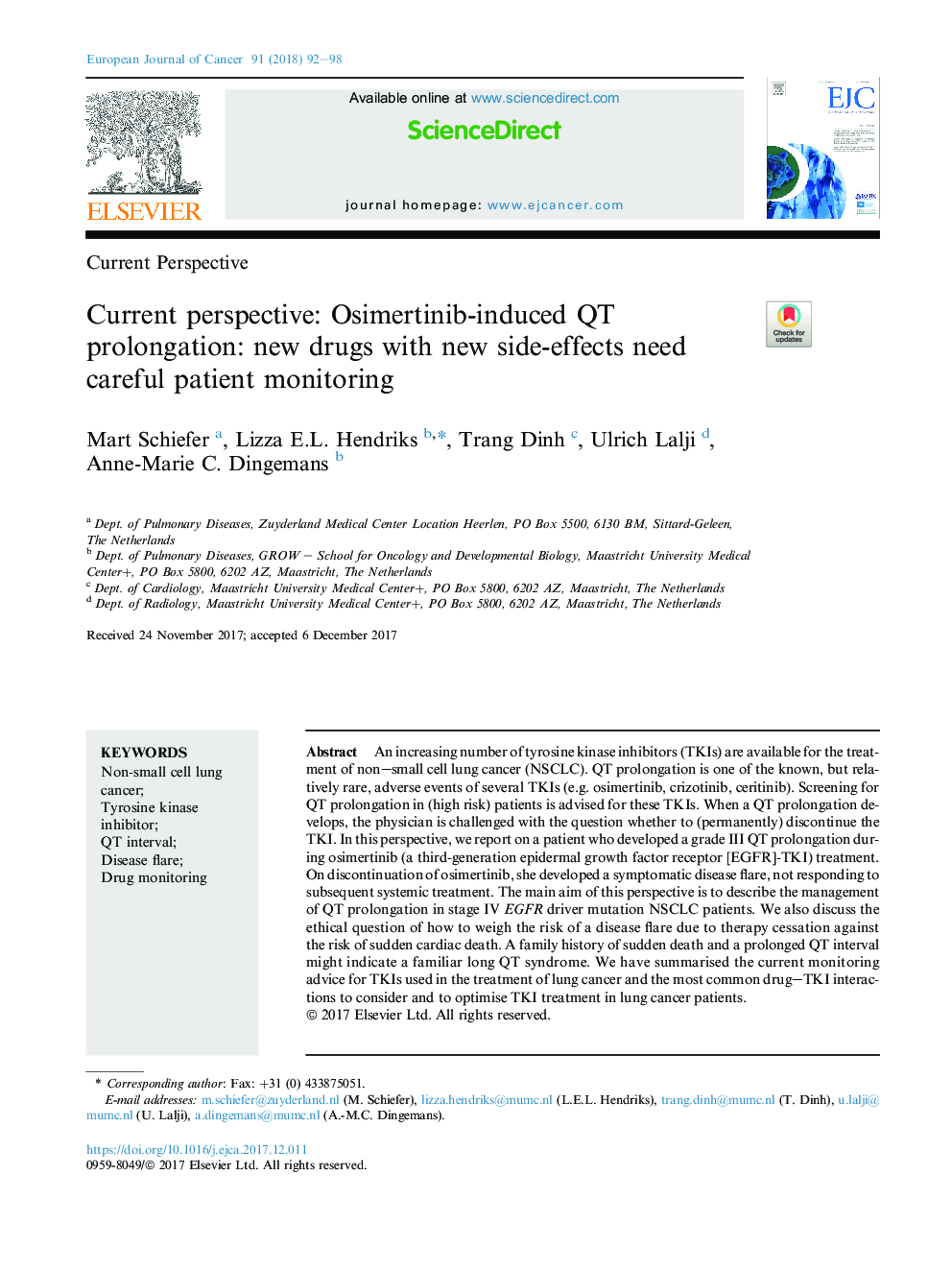| کد مقاله | کد نشریه | سال انتشار | مقاله انگلیسی | نسخه تمام متن |
|---|---|---|---|---|
| 8440391 | 1547041 | 2018 | 7 صفحه PDF | دانلود رایگان |
عنوان انگلیسی مقاله ISI
Current perspective: Osimertinib-induced QT prolongation: new drugs with new side-effects need careful patient monitoring
دانلود مقاله + سفارش ترجمه
دانلود مقاله ISI انگلیسی
رایگان برای ایرانیان
کلمات کلیدی
موضوعات مرتبط
علوم زیستی و بیوفناوری
بیوشیمی، ژنتیک و زیست شناسی مولکولی
تحقیقات سرطان
پیش نمایش صفحه اول مقاله

چکیده انگلیسی
An increasing number of tyrosine kinase inhibitors (TKIs) are available for the treatment of non-small cell lung cancer (NSCLC). QT prolongation is one of the known, but relatively rare, adverse events of several TKIs (e.g. osimertinib, crizotinib, ceritinib). Screening for QT prolongation in (high risk) patients is advised for these TKIs. When a QT prolongation develops, the physician is challenged with the question whether to (permanently) discontinue the TKI. In this perspective, we report on a patient who developed a grade III QT prolongation during osimertinib (a third-generation epidermal growth factor receptor [EGFR]-TKI) treatment. On discontinuation of osimertinib, she developed a symptomatic disease flare, not responding to subsequent systemic treatment. The main aim of this perspective is to describe the management of QT prolongation in stage IV EGFR driver mutation NSCLC patients. We also discuss the ethical question of how to weigh the risk of a disease flare due to therapy cessation against the risk of sudden cardiac death. A family history of sudden death and a prolonged QT interval might indicate a familiar long QT syndrome. We have summarised the current monitoring advice for TKIs used in the treatment of lung cancer and the most common drug-TKI interactions to consider and to optimise TKI treatment in lung cancer patients.
ناشر
Database: Elsevier - ScienceDirect (ساینس دایرکت)
Journal: European Journal of Cancer - Volume 91, March 2018, Pages 92-98
Journal: European Journal of Cancer - Volume 91, March 2018, Pages 92-98
نویسندگان
Mart Schiefer, Lizza E.L. Hendriks, Trang Dinh, Ulrich Lalji, Anne-Marie C. Dingemans,